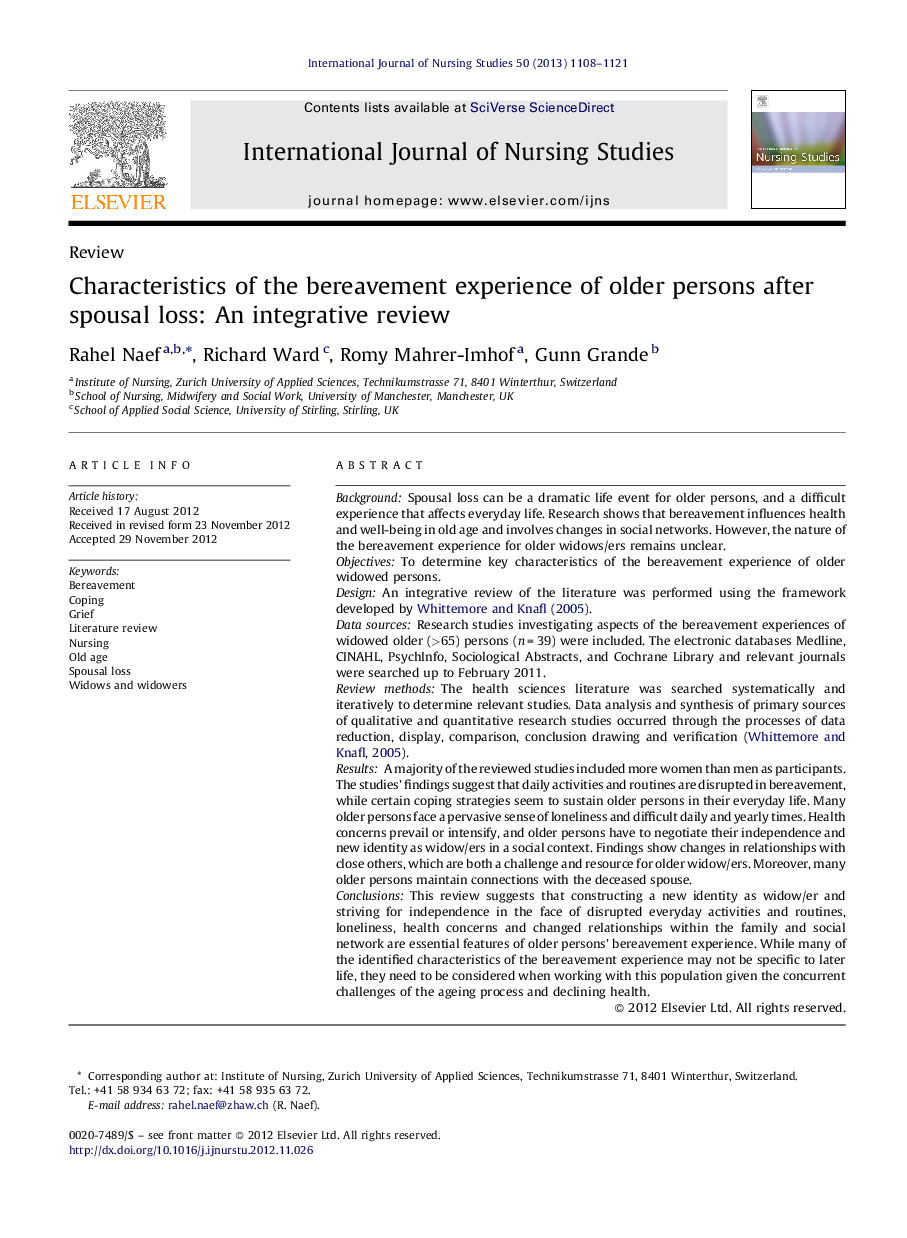| Article ID | Journal | Published Year | Pages | File Type |
|---|---|---|---|---|
| 1076299 | International Journal of Nursing Studies | 2013 | 14 Pages |
BackgroundSpousal loss can be a dramatic life event for older persons, and a difficult experience that affects everyday life. Research shows that bereavement influences health and well-being in old age and involves changes in social networks. However, the nature of the bereavement experience for older widows/ers remains unclear.ObjectivesTo determine key characteristics of the bereavement experience of older widowed persons.DesignAn integrative review of the literature was performed using the framework developed by Whittemore and Knafl (2005).Data sourcesResearch studies investigating aspects of the bereavement experiences of widowed older (>65) persons (n = 39) were included. The electronic databases Medline, CINAHL, PsychInfo, Sociological Abstracts, and Cochrane Library and relevant journals were searched up to February 2011.Review methodsThe health sciences literature was searched systematically and iteratively to determine relevant studies. Data analysis and synthesis of primary sources of qualitative and quantitative research studies occurred through the processes of data reduction, display, comparison, conclusion drawing and verification (Whittemore and Knafl, 2005).ResultsA majority of the reviewed studies included more women than men as participants. The studies’ findings suggest that daily activities and routines are disrupted in bereavement, while certain coping strategies seem to sustain older persons in their everyday life. Many older persons face a pervasive sense of loneliness and difficult daily and yearly times. Health concerns prevail or intensify, and older persons have to negotiate their independence and new identity as widow/ers in a social context. Findings show changes in relationships with close others, which are both a challenge and resource for older widow/ers. Moreover, many older persons maintain connections with the deceased spouse.ConclusionsThis review suggests that constructing a new identity as widow/er and striving for independence in the face of disrupted everyday activities and routines, loneliness, health concerns and changed relationships within the family and social network are essential features of older persons’ bereavement experience. While many of the identified characteristics of the bereavement experience may not be specific to later life, they need to be considered when working with this population given the concurrent challenges of the ageing process and declining health.
